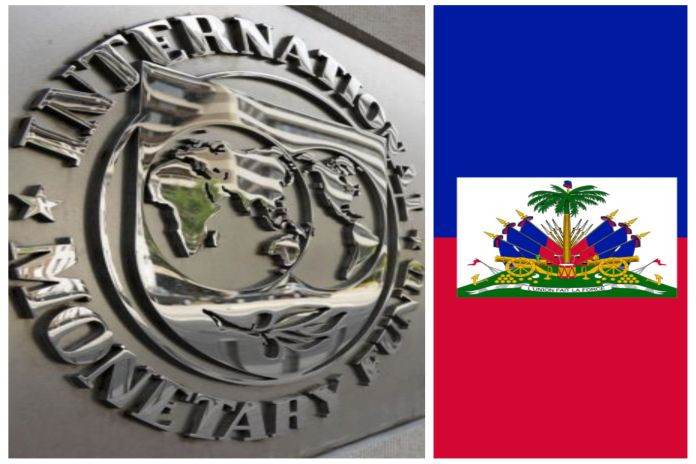– Staff Monitored Programs (SMPs) are informal arrangements between national authorities and IMF staff to monitor the authorities’ economic program. As such, they do not entail endorsement by the IMF executive board. SMP Staff reports are issued to the board for information.
- The Haitian authorities and the IMF staff reached a staff-level agreement on a new 9-month Staff-Monitored Program (SMP) covering the period June 2023-March 2024.
- Building on progress achieved under the previous SMP which was satisfactorily concluded in May 2023, the new SMP should help maintain macroeconomic stability and lock in and sustain recent reforms to further enhance economic resilience and governance.
- IMF staff welcomes the authorities continued commitment to undertake reforms amid a challenging environment and the authorities’ request for a governance diagnostic.
USA / HAITI – At the request of the Haitian authorities, an International Monetary Fund (IMF) team led by Patrizia Tumbarello held discussions with Haitian senior officials during April 10-17 in Washington, DC on a 9-month Staff-Monitored Program (SMP). Discussions continued remotely thereafter, with the final meeting held on June 27. At the conclusion of the mission, Tumbarello issued the following statement:
“The Haitian authorities and IMF staff have reached a staff-level agreement on a new SMP, covering the period June 2023-March 2024. The agreement is subject to the approval of IMF management. The SMP policies are designed to support the authorities’ economic policy objectives and build a track record of reform implementation, and provide short extensions, if needed.
“Haiti faces a challenging macroeconomic outlook amid a dire humanitarian crisis. The country has been hit hard by economic spillovers from Russia’s invasion of Ukraine, with food price inflation triggering a hunger crisis. This global shock has been compounded by a highly volatile security situation, which has heightened the economy’s fragility.
“Despite the very challenging environment, signs of resilience have emerged. Net international reserves have been rebuilt, although from a low base; custom duties helped boost fiscal revenue by almost 50 percent in the first six months of FY2023, the monetary financing of the budget has declined; and the exchange rate has recently stabilized.
“Building on the satisfactory outcome of the 2022 SMP, which concluded in May 2023, the new SMP would help strengthen Haiti’s domestic revenues mobilization and raise taxes by supporting the implementation of the tax code, thereby continuing lowering the monetary financing of the budget. It would also help further enhance transparency and accountability in the use of public spending, continue to enhance the AML/CFT framework, and build administrative and institutional capacity through capacity development.
“The forthcoming Governance Diagnostic will further identify priorities for future reforms. Its recommendations will help inform governance and anti-corruption strategy going forward.
“The IMF team wishes to thank the authorities for their excellent cooperation and candid and constructive discussions and for the continued productive dialogue, including with the Comité de Suivi (SMP high-level Monitoring Committee).”
During the mission, the team met with Michel Patrick Boisvert, minister of economy and finance, Jean Baden Dubois, Governor of the Bank of the Republic of Haiti, Pierre Ricot Odney, minister of social affairs and labor, other senior officials, the private sector (civil society, association of industries, and banking association); and closely coordinated with development partners, in line with the Fund’s Strategy for Fragile and Conflict-Affected States.
IMF Communications Department





